Executive Summary
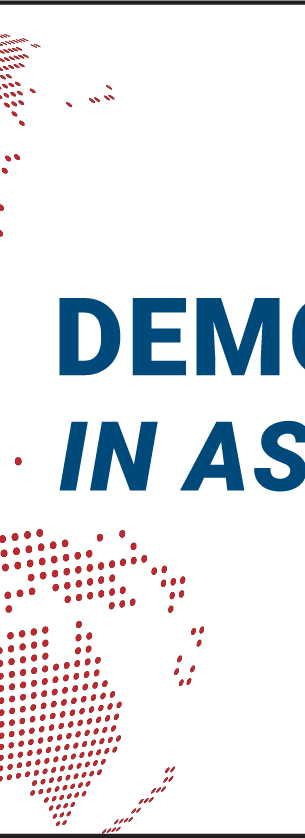 This primer characterizes the authoritarian practices of Philippine President Rodrigo Duterte’s administration and their legacies for liberal democracy in the country. It argues that the policy and rhetoric of the Duterte administration’s war on drugs have created fragile democratic institutions that are prone to abuse of power. It highlights three key areas of concern: the increasing role of coercive institutions like the police and the military in all levels of governance undermines long efforts at institutionalizing democratic control over security forces; the regime’s systematic and aggressive attacks against the political opposition, the judiciary, and the media weaken the capacity of monitory institutions to scrutinize and hold the regime accountable; and disinformation campaigns further corrode the capacity of the public to engage in critical discourse and informed political decisionmaking.
This primer characterizes the authoritarian practices of Philippine President Rodrigo Duterte’s administration and their legacies for liberal democracy in the country. It argues that the policy and rhetoric of the Duterte administration’s war on drugs have created fragile democratic institutions that are prone to abuse of power. It highlights three key areas of concern: the increasing role of coercive institutions like the police and the military in all levels of governance undermines long efforts at institutionalizing democratic control over security forces; the regime’s systematic and aggressive attacks against the political opposition, the judiciary, and the media weaken the capacity of monitory institutions to scrutinize and hold the regime accountable; and disinformation campaigns further corrode the capacity of the public to engage in critical discourse and informed political decisionmaking.
Despite the intensification of authoritarian practices in the Philippines, there remains robust albeit fragmented democratic expressions in the form of standout local mayors, digital innovations, and electoral resilience. These micropolitical democratic practices may have limited scope, but they are meaningful in consequence. The primer concludes by offering possibilities for scaling up these seemingly mundane yet nevertheless powerful expressions of counterauthoritarian practices.
Introduction
At the height of the COVID-19 pandemic, Philippine President Rodrigo Duterte registered an approval rating of 91%. A vast majority of Filipinos support the government’s pandemic response, despite the Philippines recording one of the highest numbers of infections and COVID-19-releated deaths in Southeast Asia.
The debate continues about the reasons behind the president’s popularity, but one thing is for certain: that public satisfaction lends legitimacy to Duterte’s authoritarian project. The Senate opposition did not win a single seat in the midterm elections. The Supreme Court is packed with Duterte’s appointees. The media is facing increasing constraints. Indeed, there are fewer obstacles for the current administration to mainstream authoritarian practices.
This primer begins by providing an inventory of authoritarian practices by the Duterte regime and reflect on their implications to democratic institutions. The term “authoritarian practice” is deliberately used to refer to patterns of action that disable voice and accountability. Instead of using the catch-all term “authoritarianism,” which confounds rather than clarifies political transformations in the Philippines, the term authoritarian practice lends precision in identifying political decisions, policies, and rhetoric that undermine democratic contestation and scrutiny of power. The key message in the first part of the primer is that authoritarian practices corrode the quality of democratic institutions by rendering them vulnerable to abuses of power.
But this is not the whole story. As the Philippines witness the intensification of authoritarian practices, there remains room for democratic action that facilitate participation and creative forms of co-governance. These not only serve to push back against authoritarian practices but also develop democratic projects that fit the Philippines’ youthful, global, and digital participatory cultures. This primer spotlights these democratic expressions as opportunities for reform, and concludes by considering possibilities to scale up these counter-authoritarian practices in the remainder and in the aftermath of the Duterte regime.
Fragility of democratic institutions
The Philippines has an uneven trajectory of building democratic institutions. Three decades after the 1986 People Power Revolution that put an end to Ferdinand Marcos’ dictatorship, the country appears to have developed an electoral habit of rotating power between populist and reformist presidents. 2016 was a populist leader’s turn, but instead of perpetuating a rich-versus-poor narrative, Rodrigo Duterte amplified the latent anxiety of many Filipinos that pit the virtuous citizens against unscrupulous criminals. Duterte referred to Davao — the city where he was mayor for over two decades — as Exhibit A. With unconventional methods of governance, Duterte, so the story goes, was able to transform Davao from the murder capital of the Philippines to a peace and order paradise. Becoming president allowed him to scale up this effort. “It will be bloody,” he warned the nation.
Four years into his term, President Duterte did fulfill his campaign promise. He empowered the Philippine National Police to lead his “war against drugs” which has resulted in over 8,000 deaths, as reported by the United Nations Office of the High Commissioner for Human Rights. Even the pandemic did not halt drug-related killings.
The drug war is not only Duterte’s landmark policy. It also serves as the organizing logic of his rule.
The drug war is not only Duterte’s landmark policy. It also serves as the organizing logic of his rule. A nation at war justifies authoritarian practices, for due process is a slow-moving process, and protests of “bleeding heart liberals” get in the way of the president’s law and order agenda.
The policy and rhetoric of the drug war have vast implications. They create fragile democratic institutions that are prone to abuse. Three key areas of concern are worth highlighting.
Coercive institutions
First, the drug war mainstreamed the securitization of social issues. Coercive institutions such as the police have been at the forefront of implementing social policies. Addressing the issue of illegal drugs is a clear example, with the Philippines bucking the global trend of treating substance abuse as a public health issue rather than a law and order issue.
The logic of securitizing social issues extended to pandemic response. The police were among the most visible front-liners enforcing curfew and social distancing policies with punitive measures. Protesters were dispersed and arrested with the police wearing full battle gear. Military tanks were deployed in Cebu City to communicate strict lockdown policies. A little over a month since Manila went on lockdown, over 30,000 people were arrested for breaking quarantine restrictions. Cases of police brutality surfaced. Some violators were locked in dog cages while others were made to sit under the sun. The tone from the top guarantees impunity for the state’s security forces. “Shoot them dead” was the president’s order for violators, just like the “permission to kill” in the drug war.
The result of the president’s rhetoric is the culture of impunity in the police force. Decades-long efforts at institutionalizing democratic control over security forces are being undermined, where a new generation of police officers is socialized to an unaccountable institution where police offers who killed suspects on drug raids were hailed as heroes and rewarded with promotions. A greater role is also accorded to ex-military generals who sit in key sites of power including the task force in charge of pandemic response. The growing power of the military is further legitimized by legislation such as the Anti-Terror Law, which broadens the definition of terrorism and legalizes detention without charge for 14 days. These developments, among others, illustrate the reach of authoritarian practice as far as curtailing prospects for accountability and democratic control of security forces are concerned.
Monitory institutions
Second, authoritarian practices compromise monitory institutions or bodies designed to scrutinize power. Among the earliest signs of monitory institutions’ fragility is the complicity, if not active participation of lawmakers, to the prosecution of opposition Senator Leila De Lima. As former human rights commissioner, De Lima led a Senate investigation into Duterte’s death squads a few months after Duterte assumed the presidency. Sixteen of her fellow senators voted to oust her as chair of the Senate Committee on Human Rights, followed by a series of humiliating investigations that suggested De Lima had taken money from drug lords. De Lima has been in detention for three years based on what appears to be politically-motivated charges.
De Lima’s case is a clear manifestation of authoritarian practice. It constrains accountability by subverting the role of the Senate as a check to executive power. It also constrains voice as De Lima was made an example of how far the state can go in retaliating against critical voices. Following De Lima’s detention is the ouster of Chief Justice Maria Lourdes Sereno, also a former human rights lawyer, justified based on her failure to disclose financial earnings when she was first appointed to the Supreme Court. Threats and humiliation of critical voices extend outside formal political institutions. Other controversial examples include a military general who tagged female celebrities who speak up for human rights as communist sympathisers and threatened they would “suffer the same fate” as activists killed in military encounters. The cases of Senator De Lima and Chief Justice Sereno serve as a reminder that such threats may be carried out. This sends a strong signal to watchdogs and whistleblowers to think twice about scrutinizing power.
The public sphere
Third, authoritarian practices create a fragile public sphere. The Duterte regime is notorious for its systematic distortion of public discourse. Academic studies as well as investigative reports have uncovered the administration’s mobilization of state-sponsored troll armies, which creates a toxic online environment that punishes dissenting voices. Press freedom in the Philippines is also eroding, as news organizations not only face threats of being shut down but have actually been closed by congressional votes and judicial rulings. As in previous sections, these authoritarian practices are given the green light from Duterte, who labelled journalists as “presstitutes” and propagators of fake news. Meanwhile, the Philippines’ protest culture is confronted by pandemic-related restrictions, leading to arrests of activists despite protestors practicing social distancing.
The fragility of the public sphere, however, is not the sole creation of the Duterte regime. Long before Duterte assumed power, the Philippines already suffered from a patchy track record of press freedom. The Philippines is widely celebrated as having a vibrant media environment and robust commentary culture, especially when compared to its neighbours in Southeast Asia. This reality, however, uncomfortably co-exists with the country’s track record as the deadliest peacetime country for journalists. Similarly, increasing mistrust of news organizations has made the public sphere more vulnerable to disinformation.
One cannot overstate the worry of seeing an increasingly fragile public sphere. The Philippines may not have well-established political parties, but the highly networked and vibrant public sphere has always been a political force in sparking change, whether it was ousting the Marcos dictatorship or calling out the corruption of Presidents Joseph Estrada and Gloria Macapagal-Arroyo. Many observers find it curious that dissent against the Duterte regime has not crystallized to date. At best, protests have been fragmented and fleeting. Could this be an indication of the normalization of authoritarian practices?
There are two ways of answering this question. A pessimistic answer is yes, all these developments signal the normalization of authoritarian practices. The Philippines’ pathway to democratization has long been undermined by political elites’ refusal to institutionalize reforms that strengthen political competition and accountability. President Duterte, one could argue, is simply a beneficiary of clan politics that has long defined electoral democracy in the Philippines. With political families dominating all sectors of government, including Duterte’s own family in Davao City, there is little space for alternative voices — whether in the form of opposition parties, social movements, or civil society groups — to offer credible democratic projects that can withstand the political machinery of political elites that benefit from the Duterte regime.
Democratic expressions and political transformation
On the other hand, a less pessimistic take, is no, the fragmented and fleeting contestation of the Duterte regime does not signal the normalization of authoritarian practices. What it could signal, however, are less spectacular expressions of democratic participation today. This section of this briefing, therefore, places a spotlight on some of these democratic expressions. These, one could argue, are plausible efforts at sustaining democratic action amidst authoritarian practices. Three bright spots are worth paying attention to.
Standout mayors
The first bright spot can be found in local governance. The pandemic has generated attention to standout local mayors whose open and participatory approaches to governance stand in contrast to the Duterte regime’s centralised and militarized approach. Vico Sotto — the thirty-year-old mayor who put an end to the three-decade reign of a political clan in Pasig City — has established a reputation for institutionalizing good governance practices inspired by participatory practices in cities like Naga in the Bicol region. Sotto focused on democratizing government data — from creating Freedom of Information kiosks to soliciting citizen-centred scorecards that monitor and assess the local government’s delivery of public services. He also championed inclusive governance during the pandemic. He granted financial aid to LGBTQ families and converted hotels to quarantine facilities for communities living in poverty. The young mayor is not the first and certainly not the only local chief executive that has embraced the language and practice of inclusive and participatory governance. But what is curious about his governance style is it is pitched not as an opposition to the Duterte regime — indeed the mayor has been cautious in not condemning the Duterte administration — but an alternative way of governing effectively without an iron fist. This is worth spotlighting for it invites observers to notice practices that are not overtly oppositional but nevertheless creates pockets of democratic innovations even in challenging times.
Digital innovations
The second bright spot rests on the emergence of digital governance cultures in the Philippines. The rise of troll armies has been diagnosed as an outcome of a tech-savvy generation left with little choice but to engage in precarious digital labor. The flipside of this development, however, is the rise of a generation confident in proposing technological interventions to complex governance problems. Millennial data scientists have creatively used mobility apps like Waze and Google Maps to track the spread of COVID-19, while others focused on developing a dashboard that allows citizens to monitor government spending during the pandemic. These examples, among others, lend insight into the character of democratic innovations embraced by young Filipinos today. Beyond expression of dissent in social media, the digital public sphere is also made alive by seemingly depoliticized yet nevertheless important behind-the-scenes work that promote open data critical for inclusive governance.
Electoral resilience
Despite the fragility of democratic institutions, one can argue that elections remain as one of the most resilient features of the Philippine democracy.
The third, final, and undoubtedly most obvious avenue for democratic expression are elections. As the Duterte administration’s rule draws to a close in 2022, speculations about “no election” scenarios are being raised, while questions about succession increasingly heat up. Despite the fragility of democratic institutions, one can argue that elections remain as one of the most resilient features of the Philippine democracy. It not only serves a mechanism for peaceful transfer of power but it has, in local culture, been celebrated as a “ritualized gamble.” Elections, as anthropologists describe, are “hugely popular, are taken seriously, and draw very high participation rates.” It is therefore important to focus attention towards identifying political actors that enhance competitive elections, such as grassroots movements and community leaders that can challenge entrenched political clans. The Philippine legislature continues to be controlled by a handful of families but there are exceptional success stories of so-called “dragon-slayers” that challenge the configuration of local power.
Paths for reform
The three avenues of democratic expressions discussed in the previous section send a key message — micropolitical reforms may have limited scope, but they are meaningful in consequence. This briefing concludes by offering three possibilities for scaling up these seemingly mundane yet nevertheless powerful expressions of counter-authoritarian practices.
First, champions of participatory governance at the local level warrant support, but this must go beyond idealizing individual leaders. The success stories discussed above are not singlehanded achievements of heroic politicians, but are built on a cadre of professionalized and committed civil servants who not only have the technical skills to manage day-to-day problems of running local governments but also have the sensibility to listen and engage with the feedback of ordinary citizens. A critical space for reform, therefore, rests on normalizing this ethos of civil service and drawing attention to collective achievements rather than glamorizing individual leaders.
Second, it is critical for the Philippines’ large population of digital natives to serve as main defenders of the digital public sphere. Doing this goes beyond campaigns of digital literacy and education against disinformation. As the previous section suggests, the thriving disinformation industry was a beneficiary of a precarious class of digital workers left with little choice but to work for shady clients. A polluted public sphere cannot be rescued without addressing the political economy of disinformation.
Finally, expanding field for electoral competition remains a challenge for the Philippines. Large-scale efforts at voters’ education remain futile if voters are left with a narrow field of candidates to choose from. The discourse of voter-blaming does little to deepen democratic practice. Advocacies on party building and reform remain relevant today, as well as a more serious recognition of cultural agents that shape citizens’ views on democracy and politics. While celebrities and influencers have been disparaged as insignificant voices in politics, it is worth recognizing that some of the most successful albeit fleeting campaigns against authoritarian practice, especially disinformation, are sustained by supporters of these cultural actors who are key vectors in shaping public conversation.
As authoritarian practices in the Philippines’ national politics continue to unfold, increasing attention is needed to consistent, behind-the-scenes, less spectacular forms of democratic labor. These, as this primer argues, have the power from preventing fragile democratic institutions from completely breaking apart.
-
Acknowledgements and disclosures
The author thanks Lindsey W. Ford and Manpreet Anand for their feedback on the draft manuscript. Ted Reinert edited this paper.
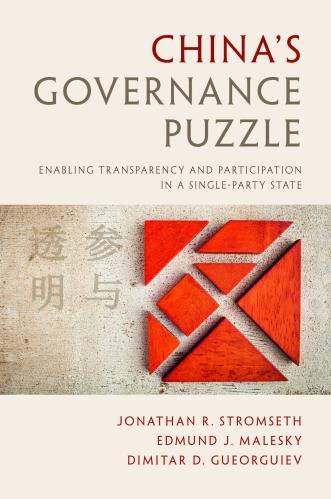
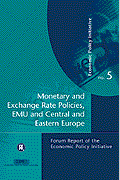
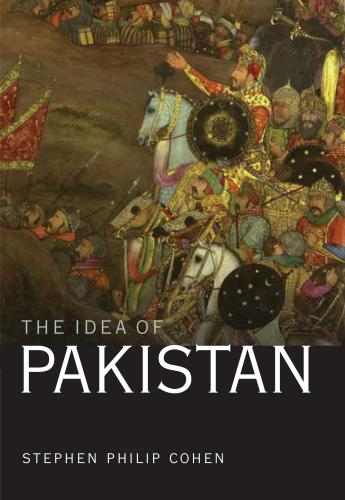
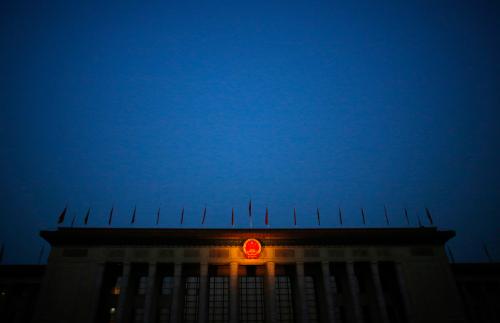




Commentary
Democratic expressions amidst fragile institutions: Possibilities for reform in Duterte’s Philippines
January 22, 2021